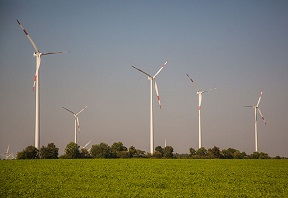So far, many analysts expected high-renewable energy scenarios to be beneficial to the global climate; but maybe a bit expensive as well. A recent study argues that this too pessimistic. The green energy transition will in fact be much cheaper than ‘more of the same’. Not even regarding the benefits of a more stable climate.

Sustainability will be cheap
The article Empirically grounded technology forecasts and the energy transition was written by Rupert Way and colleagues of the Institute for New Economic Thinking at the Oxford Martin School, University of Oxford. They estimated future energy costs for three very different scenarios. Their main conclusion is that a ‘rapid green energy transition will likely result in trillions of net savings’. This is a fundamentally new conclusion, as green energy transition scenarios so far tended to overestimate renewable energy costs. Yes, authors were well aware that renewable energy costs came down very quickly in the past. But they always found some reason to argue that this trend would come to a halt very soon. Except, it never did.
The authors’ conclusion is of great importance because, as they write, ‘decisions about how and when to decarbonize the global energy system are highly influenced by estimates of the likely cost.’ Therefore ‘concerns about costs have been a barrier to implementation.’ And yet, articles on the non-validity of green energy transition forecasts never succeeded in breaking this barrier. The present authors choose a new forecasting method, statistically validated by backtesting on more than 50 technologies. This results in ‘probabilistic cost forecasts for solar energy, wind energy, batteries, and electrolyzers, conditional on deployment.’ Of course we know that the past doesn’t determine future developments. Still, the authors claim that ‘a rapid green energy transition will likely result in overall net savings of many trillions of dollars – even without accounting for climate damages or co-benefits of climate policy.’

No obstacles to a fast transition
At present, the energy landscape is very crowded. Many technologies cost about the same, $ 100/MWh. But long-term trends show that the cost of fossil fuels doesn’t change very much, whereas renewable energy costs come down very quickly – about 10% yearly. For instance, solar power now costs about one thousandth of the level at which it was introduced in 1958. And not just solar power became much cheaper – so did wind energy, batteries and electrolysers – key technologies for a renewable energy system. For predictions about the future, the authors use Wright’s law: costs drop as a function of cumulative production. This means that cost reduction is dependent on deployment and R&D. In other words, costs don’t come down automatically; this effect is dependent on our effort.
The most optimistic scenario, Fast Transition, is in line with past trends. ‘There appear to be no major obstacles to bringing the necessary technologies to scale in terms of land use, sea, climate, raw materials, manufacturing capacity, energy return on energy invested, or system integration.’ But such a scenario will require enhancing policies: demand stimulation, enforcement of portfolio standards. The advantages of such policies will be ‘enormous’. Although we will need ‘strong international policies for building infrastructure, skills training, and making the investments required to realize future gains.’
The green energy transition
An important role in the scenario is played by P2X, a general name for technologies that convert power to fuels. These technologies will use any surplus renewable power to produce fuels and chemicals. Inevitably, as more solar and wind power become available, there will be large spells in which the excess will have to be either thrown away or used profitably. P2X technologies will produce synthetic fuels, both gaseous and liquid, that can be fed directly into the existing fuel networks. But the verdict on their cost-effectiveness isn’t clear yet – that also depends on the excess of renewable power that needs to be stored.
All in all, the world needs to change its view on the cost of the green energy transition. ‘The belief that the green energy transition will be expensive has been a major driver of the ineffective response to climate change for the past 40 years. This pessimism is at odds with past technological cost improvement trends and risks locking humanity into an expensive and dangerous energy future.’ According to Rupert Way et al. But the authors hold that ‘a greener, healthier, and safer global energy system is also likely to be cheaper’ (emphasis by the authors). They hope that such historical evidence will ‘dramatically accelerate progress to decarbonize energy systems around the world.’
Author
Diederik van der Hoeven
Source
Supplier
EGE Universitesi
Oxford Martin School (Oxford University)
Share
Renewable Carbon News – Daily Newsletter
Subscribe to our daily email newsletter – the world's leading newsletter on renewable materials and chemicals









